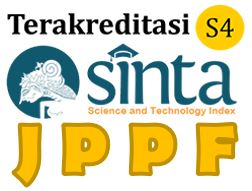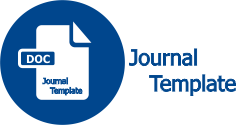Improvement Ability Students' Science Literacy in Aspects Knowledge and Competence Using the PBL Model
DOI:
https://doi.org/10.24036/jppf.v11i1.1Keywords:
Ability Science Literacy, Knowledge and Competence, PBLAbstract
Scientific Literacy is important in improving physics learning outcomes. looking at the situation in the field, student scientific literacy abbilities are still very low. The learningcarried out by students has mot simulated aspects of scientific literacy. the solutions given is to apply the PBL model. This research aims to find out whether there is an increase in students scientific literacy skill before and after carrying out learning using the PBL model. This research is a quantitative research with a pretest-posttest control group design. The population of this study was class X SMAN 1 Sungai Limau. The sampel is class X.3. the research Instruments used are teaching modules and stientific literacy tests. The data analysis techniques used are descriptive analisis techniques, normality tests, and hypothesis test. Based on the result of research hypothesis testing on students’ scientific literacy abilities, a significance value of 0.000000004 was obtained at a significance value at significance 0.05. Therefore, is accepted and is rejected. This means that there is an increase in scientific literacy abilities in the knowledge aspect and competency aspect after using the PBL model in class X at SMAN 1 Sungai Limau
Downloads
References
Alatas, F., & Fauziah, L. (2020). Problem based learning model to improve science literacy skills on the concept of global warming. JIPVA (Jurnal Pendidikan IPA Veteran) , 4 (2), 102. https://doi.org/10.31331/jipva.v4i2.862
Aliyana, Saptono, S., & Budiyono, &. (2021). Analysis of Science Literacy and Adversity Quotient on the Implementation of Problem Based Learning Model Assisted by Performance Assessment Article Info. Journal of Primary Education , 10 (2), 221–227.
ANGGRAINI, PI (2023). IMPROVING STUDENTS' SCIENCE LITERACY THROUGH STEM-PJBL LEARNING MODEL WITH ETHNOSCIENCE APPROACH ON GLOBAL WARMING MATERIAL AT MTSN 3 PEKANBARU .
Deta, UA, Sasmi, RR, Arisanti, A., Laila, L., Hudha, MN, Mubarok, H., Prahani, BK, & Suprapto, N. (2025). Earthquake scientific literacy profile of Indonesian first year pre-service physics teacher. Journal of Education and Learning , 19 (2), 890–899. https://doi.org/10.11591/edulearn.v19i2.21624
Erna Muliastrini, NK, Nyoman, D., & Gede Rasben, D. (2019). The Effect of Inquiry Learning Model with Scaffolding Technique on Science Literacy Ability and Science Learning Achievement. Elementary School Scientific Journal , 3 (3), 254. https: //doi.org/10.23887/jisd.v3i3.14116
Fauziah, N., Hakim, A., & Handayani, Y. (2019). Improving Students' Science Literacy Through Problem-Based Learning Oriented to Green Chemistry on Reaction Rate Material. Jurnal Pijar Mipa , 14 (2), 31–35. https://doi.org/10.29303/jpm.v14i2.1203
Fitri, MN, & Amnah, R. (2024). Development of Global Warming E-Module Integrated with PBL Model and Ethnoscience to Promote Students' Environmental Literacy . 10 (11), 8276–8289. https://doi.org/10.29303/jppipa.v10i11.9059
Fitriyana, N., Wiyarsi, A., Ikhsan, J., & Sugiyarto, KH (2020). Android-based-game and blended learning in chemistry: Effect on students' self-efficacy and achievement. Horizon of Education , 39 (3), 507–521. https://doi.org/10.21831/cp.v39i3.28335
Handayani, RH, Miaz, Y., Hidayati, A., & Bentri, A. (2024). Development of Interactive Multimedia Based on Adobe Flash CS6 to Improve Learning Outcomes. Journal of Science Education Research , 10 (SpecialIssue), 46–52. https://doi.org/10.29303/jppipa.v10ispecialissue.7838
Huryah, F., Sumarmin, R., & Effendi, J. (2017). Analysis of Biological Science Literacy Achievement of Senior High School Grade X Students in Padang City. Jurnal Eksakta Pendidikan (Jep) , 1 (2), 72. https://doi.org/10.24036/jep.v1i2.70
Juleha, S., Nugraha, I., & Feranie, S. (2019). The Effect of Project in Problem-Based Learning on Students' Scientific and Information Literacy in Learning Human Excretory System. Journal of Science Learning , 2 (2), 33. https://doi.org/10.17509/jsl.v2i2.12840
Juriah, J., & Zulfiani, Z. (2019). Implementation of Problem Based Learning Model Assisted by Video Media to Improve Student Learning Outcomes on the Concept of Environmental Change and Conservation Efforts. Edusains , 11 (1), 1–11. https://doi.org/10.15408/es.v11i1.6394
Lestari, I., BK Gultom, O., & Saputri Zebua, F. (2022). Application of Science Literacy in Physics Learning in the Era of Society 5.0. Journal of Innovation in Science and Applied Education (INTERN) , 1 (2), 92–98. https://doi.org/10.58466/intern.v1i2.1449
Lestari, PD, Baiduri, B., & Ummah, SK (2024). Problem-based learning with iSpring assisted inquiry method on critical thinking skills. Journal of Education and Learning , 18 (1), 148–153. https://doi.org/10.11591/edulearn.v18i1.21089
Nilyani, K., Asrizal, A., & Usmeldi, U. (2023). Effect of STEM Integrated Science Learning on Scientific Literacy and Critical Thinking Skills of Students: A Meta-Analysis. Journal of Science Education Research , 9 (6), 65–72. https://doi.org/10.29303/jppipa.v9i6.2614
Nurtanto, M., Fawaid, M., & Sofyan, H. (2020). Problem Based Learning (PBL) in Industry 4.0: Improving Learning Quality through Character-Based Literacy Learning and Life Career Skills (LL-LCS). Journal of Physics: Conference Series , 1573 (1), 0–10. https://doi.org/10.1088/1742- 6596/1573/1/012006
Prof. Dr. Sugiyono. (2018). Nonparametric Statistics for Research (Alphabeta (ed.)).
Qomariyah, W., Al Muhdhar, MHI, & Suarsini, E. (2019). Implementation of Problem Based Learning Module with SQ3R Method on Biodiversity Material to Improve Science Literacy and Environmental Care Attitude. Journal of Education: Theory, Research, and Development , 4 (3), 374. https://doi.org/10.17977/jptpp.v4i3.12134
Rubini, B., Ardianto, D., Setyaningsih, S., & Sariningrum, A. (2019). Using Socio-scientific Issues in Problem Based Learning to Enhance Science Literacy. Journal of Physics: Conference Series , 1233 (1). https://doi.org/10.1088/1742-6596/1233/1/012073
Sarnoko, Asrowi, Gunarhadi, & Usodo, B. (2024). an Analysis of the Application of Problem Based Learning (Pbl) Model in Mathematics for Elementary School Students. Scientific Journal of Applied Sciences, University of Jambi , 8 (1), 188–202 . https://doi.org/10.22437/jiituj.v8i1.32057
Setianita, OT, Liliawati, W., & Muslim. (2019). Identification of high school students' misconceptions on global warming material using a four-tier diagnostic test with confidence discrimination quotient (CDQ) analysis. Proceedings of the National Physics Seminar 5.0 , 1 (5), 186–192.
Subali, B., Ellianawati, Faizah, Z., & Sidiq, M. (2023). Indonesian national assessment support: Can RE-STEM Android app improve students' scientific literacy skills? International Journal of Evaluation and Research in Education , 12 (3), 1399–1407. https://doi.org/10.11591/ijere.v12i3.24794
Sukesti, R., Handhika, J., & Kurniadi, E. (2019). Dongrek dance (vibration, wave, and sound). National Seminar on Physics Education V 2019 , 1–7.
Sunarti, T., Suprapto, N., Prahani, BK, Satriawan, M., & Rizki, IA (2024). Online problem-based learning and 3D digital books to improve pre-service teachers' scientific literacy. International Journal of Evaluation and Research in Education , 13 (5), 3139–3150. https://doi.org/10.11591/ijere.v13i5.29835
Susanti, M., Sari, SY, & Sundari, PD (2023). Initial Ability Of Students' Science Literacy On Optical Material In Senior High School. Pillars of Physics Education , 6 (3), 218–224.
Sutrisna, N. (2021). Mixed Method Writing. Journal of Research Innovation , 1 (12), 2683–2694.
Yang, D., Skelcher, S., & Gao, F. (2021). An investigation of teacher experiences in learning the project-based learning approach. Journal of Education and Learning (EduLearn) , 15 (4), 490–504. https://doi.org/10.11591/edulearn.v15i4.20302
Downloads
Published
Issue
Section
License
Copyright (c) 2025 Ramadi, Wahyuni Satria Dewi, Yenni Darvina, Fuja Novitra (Author)

This work is licensed under a Creative Commons Attribution 4.0 International License.





